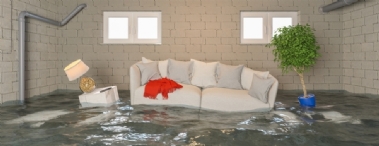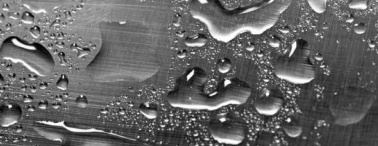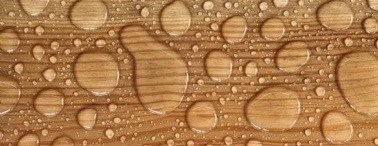
Unwanted water in or around your home is what kryptonite is to Superman; a force capable of destruction from the inside out. When it comes to H20 intrusion, your best defense is...well...a good defense. A few simple steps can turn your home into a fortress designed to repel home-wrecking water problems.

Cracks Kill
Concrete will eventually develop cracks, no matter what you do. When it comes to water, even a tiny crevice can become the path of least resistance. When it seeps under your home, it softens the ground beneath it, leading to more cracks. If you want your house to remain habitable far into the future, they must be repaired. Even a crack less that ¼" wide can begin a devastating chain reaction. Fortunately, you can do something about it. If a crack is very narrow, concrete caulk can help to seal it and prevent more water from intruding. Before applying it, use a garden hose with a high-pressure attachment to blast out dirt, debris, and dead bugs. Let the surface dry thoroughly, and then fill it with a generous amount of concrete caulk, which will expand and fill the space. For larger openings, forgo the caulk and fill the offending crevice with concrete patch.
She's a Brick...House
Water loves to wreak havoc on brick and mortar construction. Even a tiny amount can begin tearing masonry apart after repeated episodes of freezing and thawing. For this reason, it is imperative that you seal brick construction. On a dry day, pressure-wash surfaces and allow them to dry thoroughly.( Letting surfaces dry completely is very important, because applying sealer to damp surfaces will cause it to fail and completely defeat the purpose of using it.) Then apply several even coats of masonry sealer (spraying is best). Some sealers give brick a flat finish, while others provide a glossy sheen, so choosing one is a matter of personal taste.
You Must Remove your Rust
Long gone are the days of knuckle-busting scrubbing with a metal brush to remove corrosion before you could even think of applying new paint to a surface. Now you can stop metal fixtures from looking like the surface of Mars without all of the hassle. New types of paint are designed to adhere to rust, AND halt further corrosion. If neglected, rust will freeze up fixtures, so remember to keep things lubricated. Skip silicon and light oils that dilute or evaporate quickly in favor of heavy duty grease such as that used in automobile maintenance. Heavier lubricants last longer, and keep things protected from metal-eating moisture.
Get your Mind in the Gutter
There's no getting around the fact that gutter cleaning is completely and totally gross. Unfortunately (just like unpleasant diaper changes) it has to be done regularly. To make the job a little less disgusting, break out the BBQ tongs to give yourself a longer reach into your downspouts. Keeping gutters goop free keeps water from overflowing them and damaging the outside surfaces of your home. Another option is blasting out leaf debris with a high pressure hose or pressure washer. (Warning: without rain gear, you flush at your own risk.) If gutters have started to pull away from the house, replace easily-worn gutter nails with strong and long-lasting lag screws. All you need to complete the repair is a cordless drill fitted with a nut driver.
Avoid Needing a Bilge Pump in your Basement
Water in basements in any form is bad news. Condensation, runoff, and groundwater swelling can lead to big problems. Tackle condensation by keeping the space aired out. If ventilation isn't enough, install a dehumidifier. Mold, must, and mildew make you want to spend as little time downstairs as possible, so be sure to keep them at bay. If rainwater and snowmelt are not properly diverted away from your home, runoff problems will ensue.
The structural integrity of your home relies on fixing runoff problems as soon as you discover them. If your basement does not already have a pump system, installing one can cost you an arm and a leg. Fortunately, there are simpler solutions. To assist proper drainage, make sure that the ground slopes away from your house at a rate of at least one vertical inch for each twelve inches of horizontal distance from the house. In addition to ensuring adequate drainage, it is an excellent idea to apply generous coatings of concrete sealer to the floor and walls. Another option for tackling serious intrusions is to have your basement fitted with a polyurethane membrane that helps to keep out the water. Be sure to measure the space carefully so that you can obtain enough sealer to cover your basement properly.
Posted by: Ahmed Muztaba





